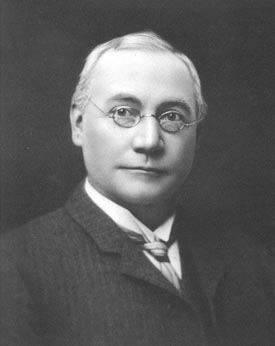Tales and Legends of the Mountain Kingdom: “Johnny-come-lately” Robert Scott defeats “Old Timer” to become Rossland’s first mayor
“There is a first time for everything”, as the saying goes, and with a rapidly growing mining camp quickly evolving into a thriving, self-sustaining community that started out from scratch, there were firsts aplenty back in the late 1890s. First mine, first building, first saloon, first lawman, first newspaper and, of course, the first mayor.
As the population of Rossland swelled between 1895 and 1896, so did the issues of growth. Attracting more and more people (as a mining town during a gold rush tends to), it was soon evident that Rossland needed to be transformed from rough and tumble outpost to something more organized and civilized. In order to do that, it needed some leadership.
In March of 1897, the province of British Columbia incorporated the City of Rossland, and all of a sudden the mayoral race on.
There were two candidates. The first was a man by the name of Charles Octave Lalonde. By election time in April 1897, Lalonde was considered an “Old Timer.” He had arrived in town in 1895 and was a merchant who occupied one of Washington Street’s original buildings. Lalonde was a Quebecer, born in Vaudreuill in 1858, and brought with him to Rossland a wife and three small children. A fourth small Lalonde was on the way by election time.
His opponent, Robert Scott, was born in Galt, Ontario, near Cambrigde, and was the son of a mill operator. Scott was about 20 years older than Lalonde and had a considerable advantage over his French Canadian competition: Scott had served three terms on the Galt city council and had been mayor of Galt for three years. He had also sat on the Waterloo County Council for several years.
He was a businessman, too, owning a company called Victoria Wheel Works, and he came to Rossland in August 1896 as a real estate investor. Seeing the promise in Rossland and wishing to take advantage of it, Scott was considered a “Johnny-come-lately” by locals. It’s interesting that there were two such distinct camps in this election so early in the development of Rossland society. Perhaps it was an indication of the swiftness of the young city’s cultural evolution—and perhaps it was a foreshadowing of small town bickering to come.
According to Harold Kingsmill’s First History of Rossland, “the election contest was warm and exciting.” I guess when you are competing to be the first mayor of a muddy mining town in the middle of nowhere and neither candidate really has much of a history there to begin with, it could conceivably be a warm-ish campaign because there is no real history of issues to squabble over; in lieu of substantive differences and track records, one imagines the ‘warmth’ may well have been personal.
At any rate, for voters (men only at this time, of course), and onlookers (everyone else, including the Chinese males), watching the election of a new town’s first mayor was presumably quite exciting.
The election happened on April 7, and Johnny-come-lately Scott won by over 100 votes. If we look at this in terms of the camp being seen as the victor, this might indicate who was forming the majority of the voting community.
At the same time, a six-member city council was also elected. Immediately, they set to work transforming the town from mucky to magnificent. The ever-opinionated Kingsmill stated, “It is a blessing that the town has been incorporated and it is a pity that it did not take place sooner. Improvement followed improvement.”
One of the major changes was the demolition of Sourdough Alley. Described by one writer as “a motley collection of cheap, ramshackle, false front buildings, cabins and shacks” and by Kingsmill as “picturesque,” Sourdough Alley was Rossland’s first business and social hub, but it also had a bit of a seedy side, was considered by some as unsafe structurally, and was even the scene of a brutal murder in March of 1896.
I can only imagine from what I’ve read and from the pictures I’ve seen that it was a bit of an eyesore, historic though it was. Whatever the case, immediately after the election, Sourdough Alley was “quite literally wiped off the map”, according to Kingsmill.
Kingsmill goes on to describe other improvements brought in by the new municipal government: “streets have been laid out where formerly there were only small trails leading the pedestrian through a maze of cabins and shacks.”
Following that, another building boom hit Rossland, “and in a short space of time, a great many buildings were erected on the northern part of Washington Street, on First and Second Avenues.” Streets were graded, and the technology of the time – telegraph, telephone, electricity, running water, and all that good stuff – were soon commonplace.
As for Scott himself, from what I can find he wasn’t terribly controversial, and certainly Kingsmill only speaks of him in glowing terms. But he wasn’t universally loved; he seemed to have it in for Big John Kirkup, Rossland’s first lawman, threatening, upon election, that Kirkup’s days were numbered.
Indeed, in July of 1897, Kirkup was let go by the city council, though he stayed on in town as the BC Government Agent and Gold Commissioner.
I can’t find whether or not Scott ran in the 1901 election, but that is the year the Old Timers got their man in power; Charles Lalonde was elected, and it appears that Scott went back to his home turf in Galt, Ontario where he was elected to Waterloo County Council for a second time in 1902. He continued to manage his wheel business but eventually he sold that endeavour to his son-in-law and moved on to axle-making. He died June 26, 1926 and is buried in his home community.
Lalonde died five years later in Vancouver, where he is buried. Incidentally, his youngest child, Maurice, who was born in Rossland in December 1897, was killed in action in WWI and is buried in Roclincourt Military Cemetery in France.
Sources:
The First History of Rossland, by Harold Kingsmill
Cambridge Ontario’s municipal site “Hall of Fame” sectionhttp://www.cambridge.ca/cs_pubaccess/hall_of_fame.php?aid=75&cpid=33&scpid=0&did=0&sid=34&ssid=0&tp=0&grid=0
http://www3.telus.net/ridgerecords/index.html
BC’s 1898 voter’s list: http://bc.canadagenweb.org/vote1898/votel.htm
Ancestry.ca
West Kootenay: The Pioneer Years, by Garnet Basque


























